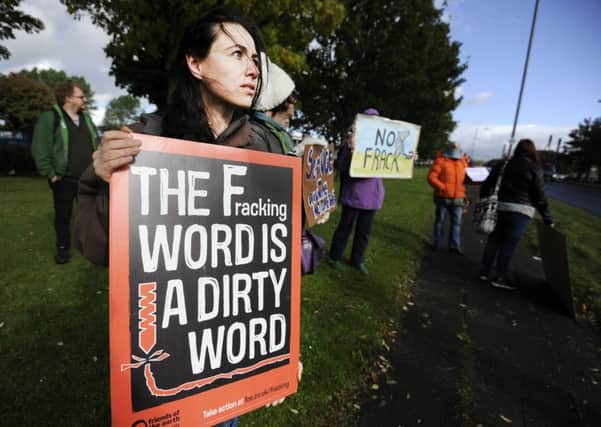Listen to case for fracking industry


One of the unfortunate effects of the Scottish Government’s decision in 2014 to impose a moratorium on onshore unconventional gas extraction, pending the outcome of its ongoing consultation exercise, was it interrupted the writing of the Reporters’ recommendation report on the evidence that was submitted to the Dart Energy public inquiry.
Had the moratorium not been introduced, the report would have been released by now to members of the public who have still to make up their minds about the relative merits and demerits.
Advertisement
Hide AdAdvertisement
Hide AdThis inquiry included Concerned Communities of Falkirk (CCOF) and Friends of the Earth Scotland (FES) – two members of the group called the Broad Alliance, whose view on hydraulic fracturing was presented in a recent edition of The Falkirk Herald by CCOF spokesperson Maria Montinaro.
Although the parties fundamentally disagreed on a number of matters, there was, however, one critical piece of evidence on which an agreed position was reached ahead of the inquiry closing.
It concerned NORM – naturally occurring radioactive material – and the potential for exposure to higher concentrations of radionuclides as a result of the drilling operations.
CCOF contended ahead of the inquiry this would lead to the Firth of Forth being polluted with radioactive produced water causing catastrophic public health and ecology impacts.
Advertisement
Hide AdAdvertisement
Hide AdHowever, once their appointed expert had the opportunity to consider the evidence put forward by Dart Energy’s radiation witness, he accepted he had got several important facts wrong and agreed he had overstated the position.
The evidence of Dart Energy that, with proper management the impact of NORM on local water, soil and air quality would be insignificant, went forward unchallenged.
Another central issue was doubts over the relevance and validity of evidence taken from unconventional gas operations carried out in the US and Australia.
However, the Broad Alliance made it clear, in its recent submissions to the Scottish Government, factors like this should not be given any weight when Ministers review their moratorium.
Advertisement
Hide AdAdvertisement
Hide AdIt is clear members of the Broad Alliance will not withdraw their objections to the industry under any circumstances, regardless of the country’s need to secure an indigenous gas supply to meet its short to medium term energy needs.
And this is the problem which the industry faces.